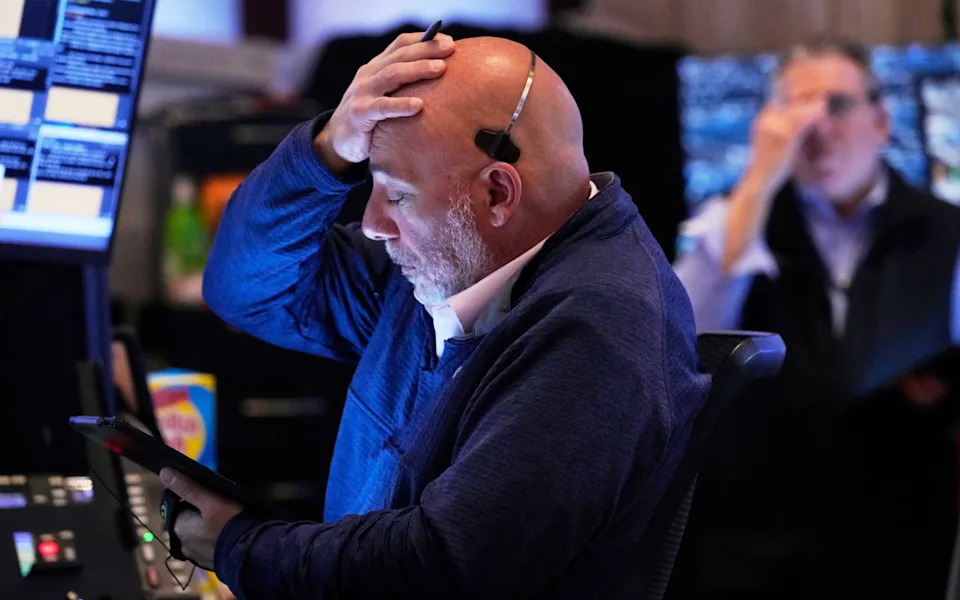News
Trump’s first 100 days worst for Wall Street since Watergate

Donald Trump’s first 100 days in office have have been the worst for Wall Street of any new president since the Watergate scandal, figures show.
The S&P 500 index, which tracks America’s largest companies, is on course to deliver a 7.9pc decline for the period following Mr Trump’s return to power on Jan 20.
It marks the worst first 100 days’ performance of any US president since Richard Nixon was replaced by Gerald Ford.
Nixon was forced to resign in August 1974 – midway through his second term – after the Watergate scandal forced him from office.
In the 100-day period that followed his exit and the subsequent political turmoil, the S&P 100 index declined 11.8pc.
The slump led to one of the most prolonged bear markets for US stocks on record, with equities failing to recover again until the early 1980s under Ronald Reagan.
Mr Trump’s initial performance is in stark contrast to Joe Biden’s period in office, when a post-Covid lockdown rally helped the S&P 500 to a 10.9pc gain during his first 100 days.
That was the best performance since Franklin D Roosevelt’s “New Deal” presidency in 1933 following the Great Depression, according to Bloomberg.
It also contrasts with the first 100 days of Mr Trump’s first term in 2017, when the stock market rose 4.6pc.
Luca Bindelli, head of investment strategy at Lombard Odier, said policy under Mr Trump “has been even more unpredictable” than during his first term in office “thanks to daily messaging that has felt either uncoordinated or has flip-flopped, making equity markets highly challenging to navigate on a short-term basis”.
“Everyone had ‘Trump 1.0’ in mind, when we had stimulation followed by a trade war, but it turns out under Trump 2.0 that this template was back to front, and what we got was a trade war before any stimulus – markets are still waiting for the good news ,” he said.
Global stock markets plunged in the wake of Mr Trump’s “liberation day” tariffs on April 2, wiping $8.6 trillion (£6.4 trillion) off the value of indices worldwide, according to AJ Bell.
That loss has reduced to about $1 trillion since he announced a 90-day suspension on most of his tariffs on April 9.
The tariff climbdown has helped put the FTSE 100 in London on track for its longest period of gains in more than five years .
The UK’s flagship stock index is on course to have climbed for 11 consecutive days, its longest streak since December 2019, giving it gains of nearly 10pc.
Another catalyst for markets has been the hopes for an easing trade war between the US and China.
Mr Trump has said America could lower its 145pc tariffs on the world’s second largest economy, although his claims that he has held talks with his counterpart Xi Jinping have been denied by Beijing.

Scott Bessent, the US treasury secretary, said on Monday that “all aspects” of the US government were in contact with China, which has hit back at the Trump administration with 125pc tariffs on American goods.
He said he was “sure” that China wants to de-escalate the trade war, adding that many countries have presented “very good” proposals on trade.
“We’ll see where this goes,” Mr Bessent told CNBC.
“As I’ve repeatedly said, I believe it’s up to China to de-escalate because they sell five times more to us than we sell to them, so these 125pc tariffs are unsustainable.”
Broaden your horizons with award-winning British journalism. Try The Telegraph free for 1 month with unlimited access to our award-winning website, exclusive app, money-saving offers and more.

